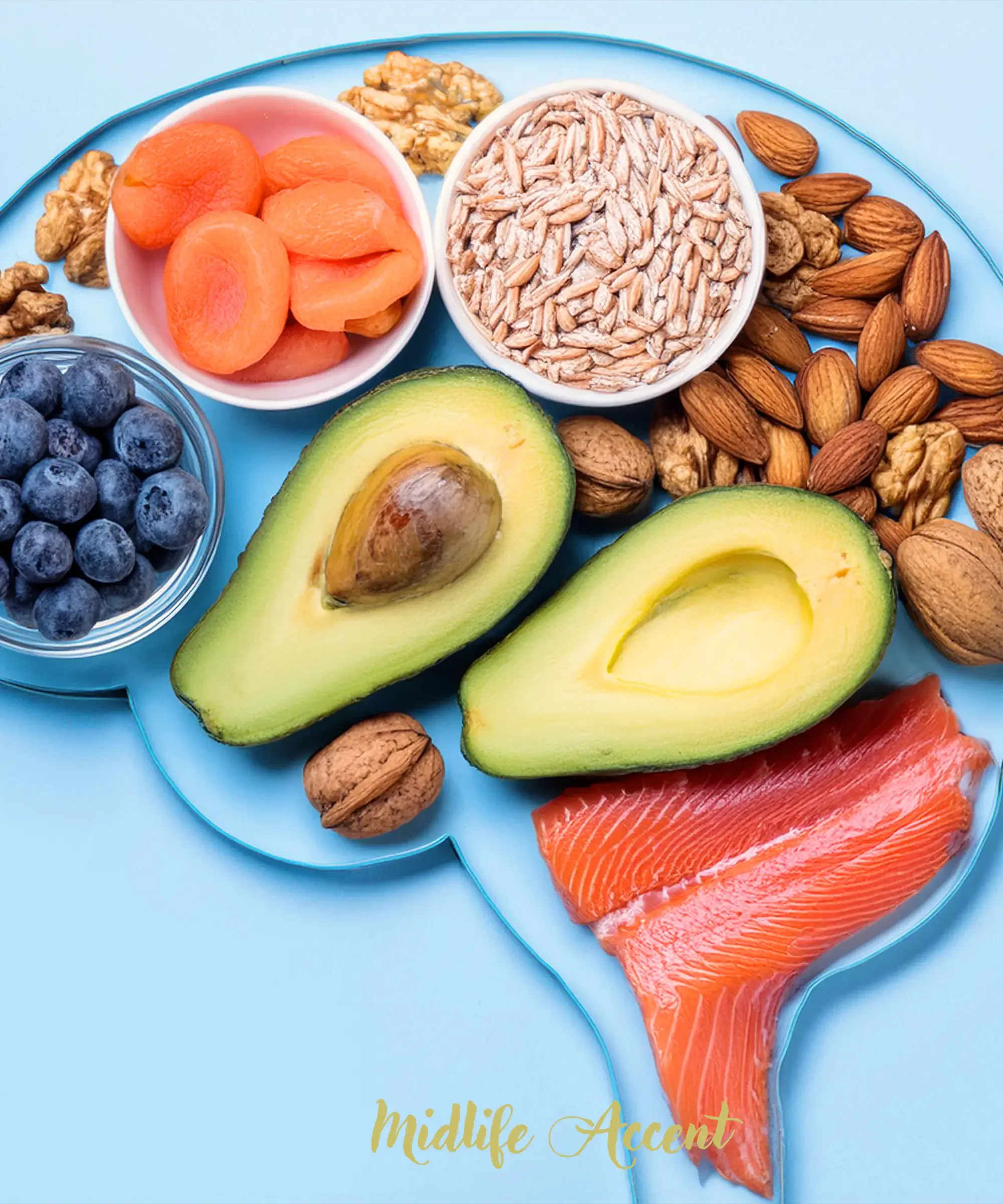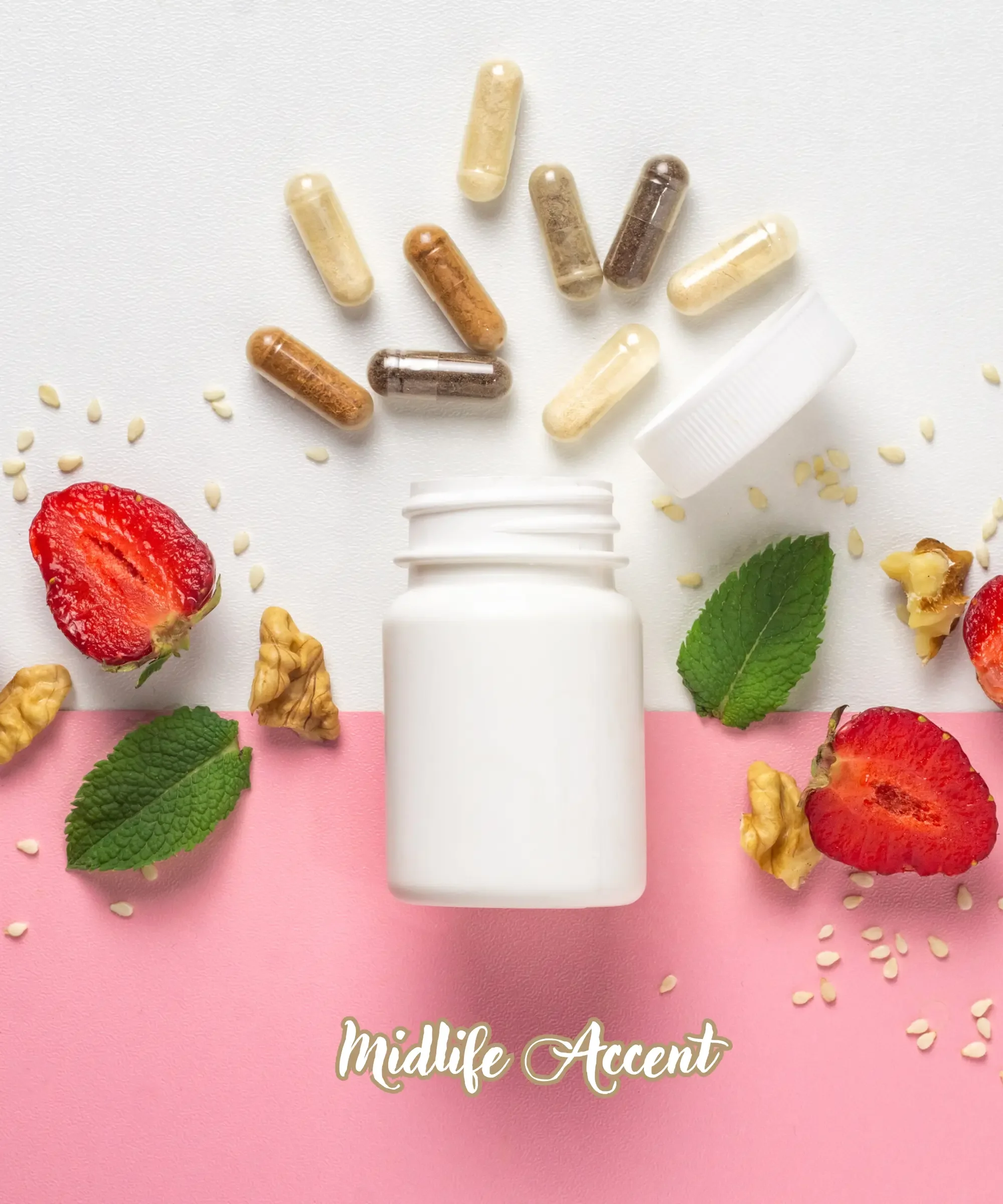My Anxiety Wasn’t Just in My Head—It Hit My Stomach First
This post may contain affiliate links. If you choose to purchase through them, I may earn a small commission at no extra cost to you.
Have you ever felt your stomach twist before a big meeting? The churn that comes out of nowhere, as if your body knows the pressure before you even speak?
Maybe you’ve sprinted to the bathroom before an interview, or felt your belly knot and bloat after a tense conversation.
That’s not “all in your head.” It’s the gut-brain connection at work—your mind and stomach are constantly talking, and under stress, their quiet conversation can erupt into a full-blown argument.
In this post, we’ll unravel why stress shows up in your gut, the symptoms you should never ignore, and the natural ways to restore peace. Think of it as a guide to transforming your gut from an anxious roommate into your calmest, most loyal ally.
The Science of the Gut-Brain Axis
Your brain and gut are linked by the vagus nerve, a two-way superhighway for messages. When you’re relaxed, the vagus nerve helps keep digestion humming along. But when you’re stressed, your brain sends an urgent “we’re in danger” signal—slowing digestion so your body can focus on survival.
The problem? In 2025, most of us aren’t running from predators—we’re running from back-to-back Zoom calls, work deadlines, and a never-ending news cycle. Yet your gut responds the same way, leading to digestive chaos.
🔗 Related: How to Know When You’re Stressed: 10 Clear Signs You Can’t Ignore
Why Stress Shows Up in the Stomach
Stress hormones like cortisol and adrenaline cause:
Reduced blood flow to digestion
Increased inflammation in the gut lining
Shifts in gut bacteria balance (more of the “bad” guys)
It’s why anxiety can cause bloating, stomach pain, or sudden bathroom runs.
🔗 Related: How to Lower Cortisol Naturally: 10 Ways for Midlife Women to Reduce Stress
The Rise of “Poop Anxiety”
It sounds funny, but it’s real. “Poop anxiety” is when you feel nervous about your bathroom habits—worrying about having to go urgently, or not being able to go at all, in public or high-stress situations. The worry itself can make symptoms worse, creating a stress–gut loop.
📋 Symptoms Checklist — Is Your Gut Stressed?
Frequent bloating or gas
Urgency before stressful events
Stomach pain with no clear cause
Diarrhea or constipation swings
Loss of appetite or intense cravings
Fatigue that follows gut flare-ups
If this list looks familiar, your gut might be waving a stress flag.
How Stress Increases Inflammation
Chronic stress keeps cortisol high, which disrupts your gut barrier, allowing inflammation to build. This inflammation can:
Affect mood (through serotonin production in the gut)
Trigger more anxiety
Make digestion more sensitive to triggers
Diet Fix — Fibermaxxing and Gut-Friendly Eating
Fibermaxxing—packing your diet with both soluble and insoluble fiber—supports gut health, balances blood sugar, and feeds good bacteria.
Gut-Friendly Foods:
Soluble fiber: apples, chia seeds
Insoluble fiber: leafy greens, carrots, whole grains
Prebiotic foods: garlic, onions, asparagus
Probiotic foods: kefir, sauerkraut.
L. reuteri yogurt: This yogurt is different. This unique probiotic strain helps balance your gut bacteria, which can ease stress-related stomach issues while supporting digestion, mood, and even immune health.
Unlike conventional yogurts, which are cultured for 4 to 8 hours, L. reuteri requires a slow, 36-hour fermentation to unlock its full benefits. It’s one of our favorite (and most effective) ways to nurture a calm, healthy gut.
If you want to learn exactly how to make it and why it works, check out my full guide here. L. reuteri Yogurt: How to Make It and Why It’s a Gut Game-Changer.
💡 Tip: Start slow with fiber to avoid extra bloating.
🔗 Related: 5 Low-Carb Comfort Meals
Lifestyle Fix — Calm the Gut by Calming the Brain
Vagus nerve stimulation: hum, sing, or splash cold water on your face
Gentle movement: walking after meals, yoga twists, Zone 2 cardio
Breathing for digestion: deep belly breaths after eating to switch your body into “rest and digest” mode
💊 Supplements for Gut-Brain Balance
Magnesium L-Threonate: Supports calm and cognitive function
Adaptogens: Ashwagandha, Holy Basil.
L-reuteri Yogurt
Affiliate Disclaimer: Some links in this section may be affiliate links, which means I may earn a small commission at no cost to you. I only recommend products I truly use and trust.
When to See a Doctor
Seek medical advice if you have:
Severe or persistent abdominal pain
Blood in stool
Unexplained weight loss
Frequent vomiting
FAQs
Q: Can stress cause IBS?
Yes. Stress can trigger IBS flare-ups or worsen existing symptoms.
Q: How do I know if my gut issues are stress or something else?
Track symptoms alongside stress levels. If they rise and fall together, stress may be a driver.
Q: What foods are best for calming the gut?
High-fiber veggies, fermented foods, and balanced meals that stabilize blood sugar.
Q: How long does it take to heal gut health naturally?
It varies, but many notice improvements in 4–12 weeks with consistent habits.
🌿 Final Thoughts
Your gut and brain are partners—they thrive or struggle together. If you’ve been feeling stressed and your digestion is a mess, it’s not “all in your head.” It’s in your nervous system, your gut lining, and your daily habits.
Start small: add fiber-rich foods, take a calming walk, breathe deeply. The more you nurture both brain and belly, the more they’ll support each other—and you.
Your Turn:
Have you ever felt your stomach twist during stressful moments — or found that anxiety seems to live in your gut? I’d love to hear your story. Share your experience or your go-to natural fixes in the comments below. Your insight might be exactly what someone else needs to read today.
🔥 Related:
I Didn’t Know Stress Was Physical—These 10 Signs Showed Up in My Body
I Couldn’t Lose Weight—and Cortisol Was the Reason
Why Magnesium Threonate Made a Difference in My Brain & Sleep
The 7 Supplements That Actually Help Improve Type 2 Diabetes Naturally
Disclaimer: I’m not a doctor, medical professional, or therapist. The information in this post is for educational purposes only and reflects my own research and personal experience. It’s not a substitute for professional medical advice, diagnosis, or treatment. Always consult a qualified healthcare provider before making changes to your diet, lifestyle, supplements, or treatment plan.
Affiliate Note: Some of the links in this post are affiliate links. If you choose to click and make a purchase, I may earn a small commission — at absolutely no extra cost to you. I only share products and resources I genuinely use, love, or believe can make a real difference. Your support helps keep this space alive and thriving, so thank you from the bottom of my (very grateful) heart. 💛



